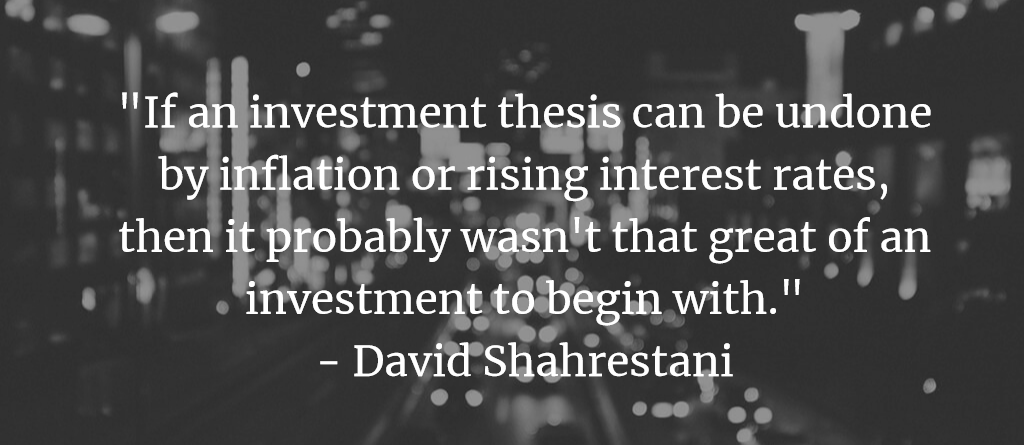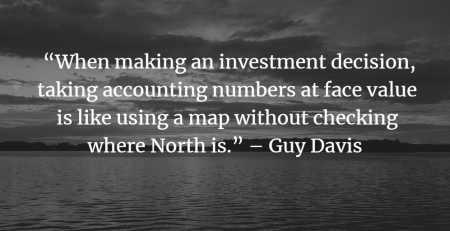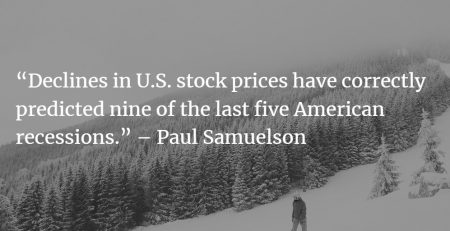The Importance of Pricing Power in Inflationary Environments
There are two important considerations for today’s market environment. One (which we wrote about in our last post) is having the economic strength to take advantage of market volatility rather than being beholden to the capital markets.
The second consideration has to do with inflation and pricing power. The best hedge against rising inflation isn’t gold or bitcoin, but rather owning businesses that produce goods and services that are in demand, and which have two key characteristics.
Firstly, we want to see low future Capex requirements – because if prices are rising, and you’ve got a lot of Capex investments to make, you’re going to find yourself with lower future returns than initially expected. Perhaps your investment was committed with a return expectation of 15%, but if you find your Capex costs rising, those returns will quickly shrink.
And secondly, we want businesses with pricing power. Pricing power doesn’t simply mean the ability to raise prices – in fact, in an inflationary environment, you will likely find that everyone is raising prices. Real pricing power is more than that – it is the ability to not just raise prices, but to keep them there without the fear of your competition stealing your customers by undercutting you.
The best example of this kind of business is a toll booth on a highly trafficked bridge. The investment to build the bridge and tollbooth were made in the past, so there isn’t any worry of inflated costs going forward. And, with a highly in-demand product, along with few alternatives, the tollbooth can raise their prices to keep pace with inflation, and then keep them there with no fear of competitive damage. The inflation around them becomes a wash and is simply a passthrough – ultimately leaving shareholders unscathed.
Our portfolio consists of many of these “tollbooth” like businesses. Consider two of our holdings that generate revenue by charging a percentage of transaction values – Mastercard and First American Financial.
Mastercard charges a very tiny percentage fee on every electronic transaction that crosses their payment rails. This means that as the dollar amount of transactions increases due to inflation, Mastercard automatically claims its additional portion of each nominal dollar.
First American Financial provides title insurance for housing transactions that are typically priced as a tiny percentage fee on the total price of the transaction. So as home prices are appreciating in an inflationary environment, then First American Financial also naturally increases its nominal dollar take rate.
Other companies protect against inflation in different ways – for example, those that generate revenue through an auction mechanism such as our holdings in Alphabet and Meta Platforms. For both, auctions determine the price that advertisers pay to advertise on their platforms. If there is more money in the system, then it follows that there will likely be higher bids in these auctions allowing both companies to comfortably keep pace with inflation.
Some of our holdings even have pricing increases directly built into their contractual arrangements with their customers – such as American Tower, Crown Castle, Equinix, GFL Environmental, and Air Products. In each case, contractual mechanisms allow these companies to raise their prices to recapture inflationary costs, often with direct CPI or fuel surcharges.
However, one risk we must remain aware of is that we do own a few companies that are part way through a significant Capex cycle (APD, OCDDY). These are areas we have investigated closely, and one of the benefits of maintaining a high-quality threshold across all our investment decisions is that these remain companies that have extremely healthy return levels such that cost increases are unlikely to derail our investment case.
Throughout our portfolio, you will find resilient companies that we are confident will ultimately thrive in any market environment. Unfortunately, many investors make the mistake of owning businesses that will only thrive in one type of environment and naively believe themselves capable of timing when to enter/ exit such positions.
For example, oil and gas companies have done very well recently, largely because unpredictable geopolitical events have created a short-term supply shock and increased prices. We have seen how this story ends time and time again, with the high price of energy eventually leading to the low price of energy and vice versa. We have little interest in trying to time these cycles.
Or consider the young growth-stage companies that are spending heavily to acquire customers today yet will not produce significant revenues until years in the future – for example, a company like Peloton which is expected to burn through roughly $500m of cash during the next three months and will likely run out of cash in just three more quarters if nothing changes.
The problem for Peloton is that they spend heavily on marketing and subsidizing hardware to attract customers, and in an inflationary environment those costs will continue to increase while they are unable to significantly raise their prices as an offset. So, while inflation was low and capital was plentiful, Peloton might have seemed like a great investment, but now that capital is far scarcer and inflation is rising, flaws in Peloton’s model are becoming exposed.
We are always of the mind that we want to avoid these boom-and-bust cyclical industries and simply own exceptional companies, which due to their inherent pricing power will be able to succeed in any market environment – especially one of significant inflation. As we have said before, if an investment thesis for any company can be undone simply by introducing inflation or rising interest rates, then it probably wasn’t that great of an investment to begin with.
Disclosures: This website is for informational purposes only and does not constitute an offer to provide advisory or other services by GCI Investors in any jurisdiction in which such offer would be unlawful under the securities laws of such jurisdiction. The information contained on this website should not be construed as financial or investment advice on any subject matter and statements contained herein are the opinions of GCI Investors and are not to be construed as guarantees, warranties or predictions of future events, portfolio allocations, portfolio results, investment returns, or other outcomes. Viewers of this website should not assume that all recommendations will be profitable, or that future investment and/or portfolio performance will be profitable or favorable. GCI Investors expressly disclaims all liability in respect to actions taken based on any or all of the information on this website.
There are links to third-party websites on the internet contained in this website. We provide these links because we believe these websites contain information that might be useful, interesting and or helpful to your professional activities. GCI Investors has no affiliation or agreement with any linked website. The fact that we provide links to these websites does not mean that we endorse the owner or operator of the respective website or any products or services offered through these sites. We cannot and do not review or endorse or approve the information in these websites, nor does GCI Investors warrant that a linked site will be free of computer viruses or other harmful code that can impact your computer or other web-access device. The linked sites are not under the control of GCI Investors, and we are not responsible for the contents of any linked site or any link contained in a linked site. By using this web site to search for or link to another site, you agree and understand that such use is at your own risk.






